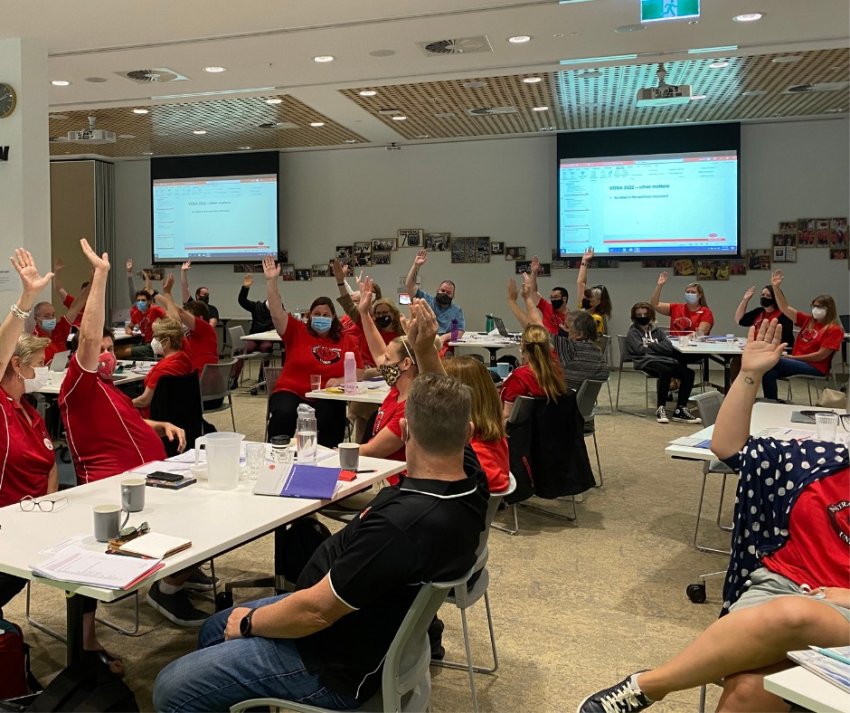
The Australian Education Union (AEU) is finalising an enterprise agreement between public school teachers and the Victorian Department of Education.
In the first ballot of union members only, conducted in the first week of March, more than 60% voted “yes”, with 40% voting “no”. The next vote in the second week of Term 2 will include all school staff and will be conducted by school principals.
Teacher union activists in the Melbourne Educators for Social and Environmental Justice (MESEJ) are campaigning for union members to vote “no”.
The AEU claims the proposed agreement delivers on key issues including workload relief and fair salaries.
Workload is a key concern for public sector teachers; last year, education workers stated in a survey that it was excessive, with teachers having to work more than 52 hours a week.
Teachers argue that after years of eroded conditions the proposed agreement does little to address this. They also say the promised pay rise is not enough and want the union to do better.
AEU officials are supporting the proposed agreement’s promise of a 1.5 hour reduction in face-to-face teaching hours, which would only come in next year, after the department ratifies the agreement.
Unionists’ opposition to the proposed agreement was made clear in a protest called by the MESEJ on February 25. They are campaigning for a permanent reduction in face-to-face teaching to 18 hours in primary and secondary schools, a real reduction and cap on class sizes and a wage rise above inflation for all teachers.
Teacher activist and AEU State Council member Mary Merkenich told Green Left Radio on 3CR on April 22 that the promised 2% wage rise was pitiful given “3.5% inflation and growing price of essential goods”.
Merkenich said she was campaigning for a “no” vote because the proposed agreement did little to address the workload problem and did not address burgeoning class sizes. She said the agreement would also mean teachers would “lose up to three of our four ‘professional practice’ days”, time for teachers to plan their classes without the students.
She also said the agreement’s proposed 1.5 hour reduction in face-to-face teaching was uncertain, because this part of the deal had not been written into the enterprise bargaining agreement but rather is covered as a deed. That is problematic, Merkenich said, because, union officials and industrial lawyers say “any breach of this clause won’t be covered by Fair Work and will instead have to be dealt with in the courts”.
“Given the huge teacher shortage, for schools to be able to implement the 1.5 hour reduction, more than 2000 new teachers will need and the state government has not agreed to do that.”